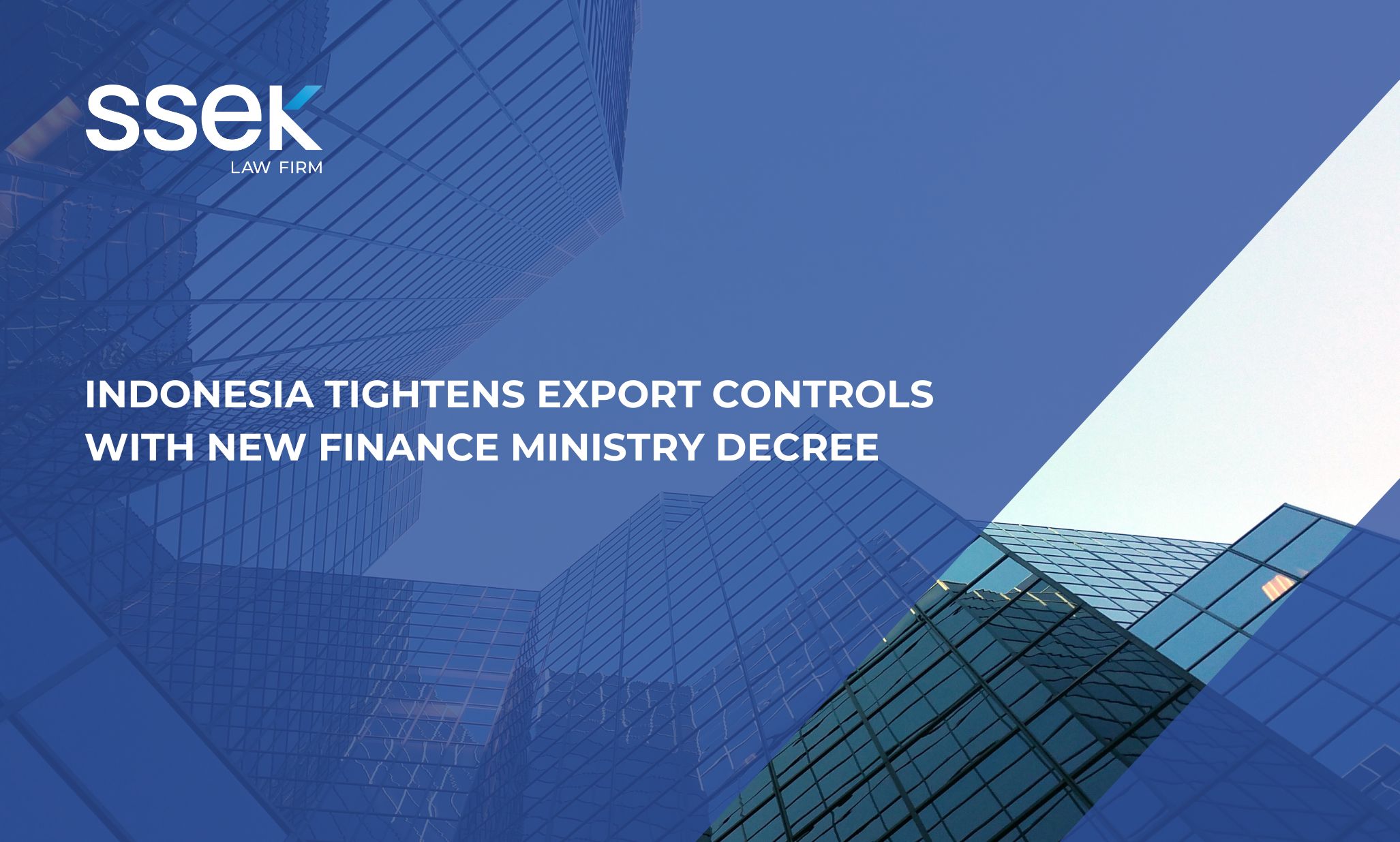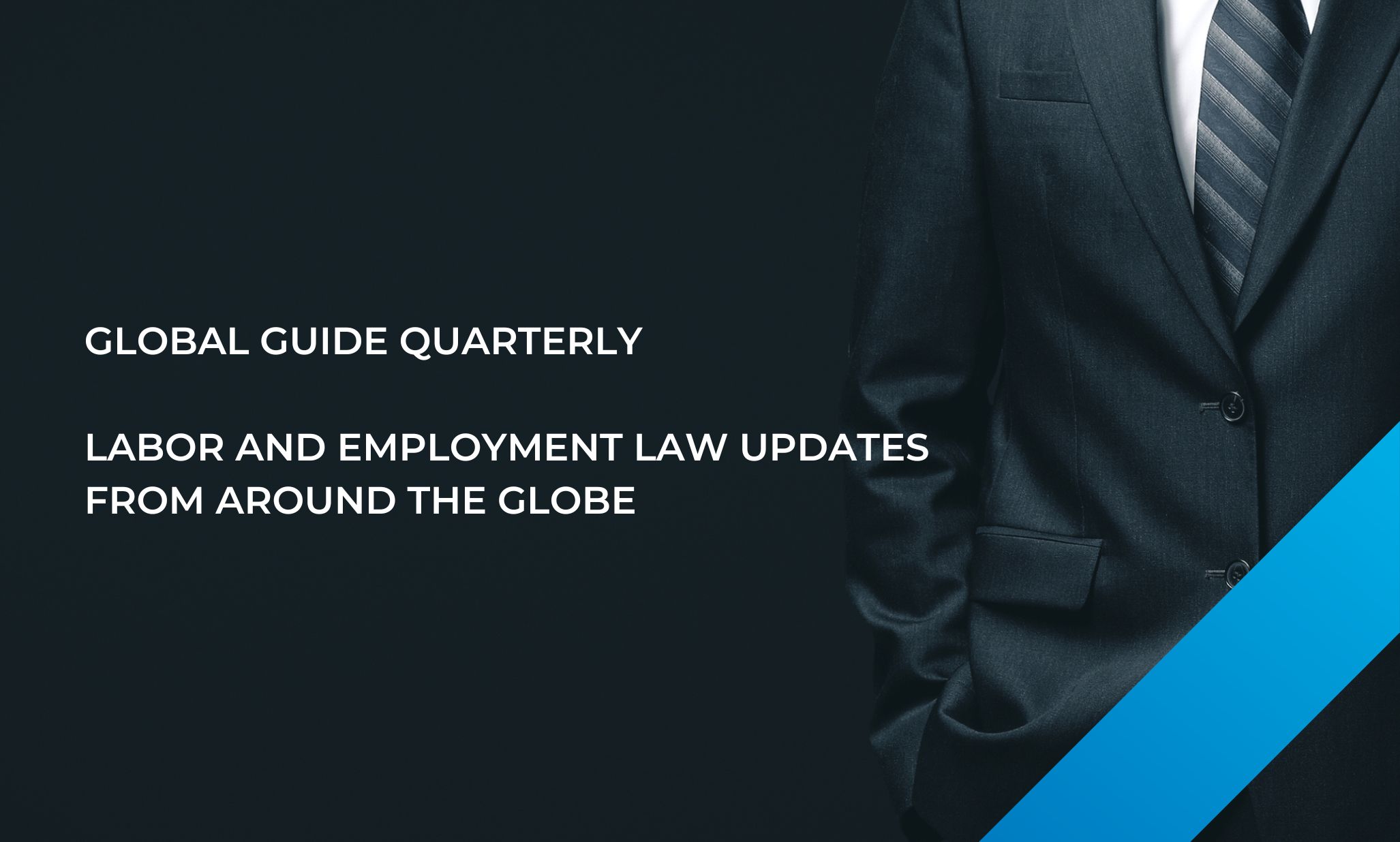

By Andini H. Dewi B
ank Indonesia (BI) recently issued several regulations related to foreign exchange transactions by Indonesian banks, which update existing regulations issued by BI. Below is a brief summary of the new regulations:
1. Bank Indonesia Regulation No. 16/16/PBI/2014 dated September 17, 2014 regarding Foreign Exchange Transactions against Rupiah with Domestic Parties (PBI 16/16)
One of the considerations of BI in drafting PBI 16/16 was the need to create a healthy financial market, in particular a healthy foreign exchange market in Indonesia. As part of that, BI wanted to provide flexibility for parties conducting foreign exchange transactions against Rupiah in Indonesia.
PBI 16/16 was issued by BI to comprehensively govern foreign exchange transactions against Rupiah. PBI 16/16 consists of nine chapters and 24 articles. It defines foreign exchange transaction against Rupiah as the sale and purchase of foreign exchange against Rupiah in the form of a: (i) spot transaction; or (ii) derivative transaction (which can be in the form of a forward, swap or options transaction).
Banks in Indonesia can conduct foreign exchange transactions on their own behalf or on behalf of a domestic party based on a contract. Banks are required to have written internal guidance on how foreign exchange transactions against Rupiah should be conducted.
PBI 16/16 sets thresholds for foreign exchange transactions that must be done with an underlying transaction. Those thresholds are: (i) the purchase of more than US$100,000/month/customer of foreign exchange against Rupiah for spot transactions and derivative transactions other than forward and options transactions; and (ii) the purchase of more than US$1,000,000/month/customer of foreign exchange against Rupiah for a derivative transaction in the form of a swap transaction.
If a spot or derivative transaction passes one of those thresholds, then such transaction must be conducted based on an underlying transaction. PBI 16/16 sets forth the types of transactions that can be used as an underlying transaction. Those transactions are: (i) sales of goods and/or services inside and/or outside Indonesia, and (ii) investments in the form of direct investment, portfolio investment, loan, capital, and other domestic or overseas investment. These underlying transactions shall not include the placement of funds in a bank (savings, giro, deposit, Negotiable Certificate of Deposit) or the transfer of funds by a fund-transferring company.
There is an exemption for the requirement to have an underlying transaction when such transaction is performed to fulfill a derivative transaction that from the beginning is done through: (i) rollover, (ii) early termination or (iii) termination or unwinding.
From an administrative perspective, PBI 16/16 stipulates the documents that must be submitted to prove there is an underlying transaction for a foreign exchange transaction against Rupiah. Pursuant to PBI 16/16 the required documents to be submitted for a spot transaction differ from the required documents for a derivative transaction. Further provisions on the documents that must be submitted to the banks will be stipulated in a Circular Letter to be issued by BI.
Although PBI 16/16 generally does not prohibit foreign exchange transactions against Rupiah, it stipulates that banks are prohibited to carry out the following transactions: a. foreign exchange transaction against Rupiah if the transaction is or has the potential to be related to a structured product; b. providing credit and financing in a foreign currency and/or in Rupiah for the interest of a derivative transaction; or c. providing an overdraft (cerukan) to a customer in regard to a foreign currency transaction against Rupiah.
A bank that violates any provision of PBI 16/16 will be subject to: (i) an administrative sanction in the form of a written warning and/or (ii) a financial sanction of 1% of the nominal value of the transaction involved for each violation, with a minimum sanction of Rp 10 million and a maximum sanction of Rp 1 billion.
2. Bank Indonesia Regulation No. 16/17/PBI/2014 dated September 17, 2014 regarding Foreign Currency Transaction against Rupiah between a Bank and Foreign Party (PBI 16/17)
Similar to PBI 16/16, PBI 16/17 was issued to comprehensively govern foreign exchange transactions against Rupiah in Indonesia. Unlike PBI 16/16, which targets bank customers that are Indonesian, PBI 16/17 governs foreign exchange transactions by banks and foreign parties.
PBI 16/17 defines foreign parties as: (i) foreign citizens, (ii) foreign legal entities, (iii) Indonesian citizens who have foreign citizenship and who are not domiciled in Indonesia, (iv) offices of Indonesian banks that are domiciled outside Indonesia and (v) offices of Indonesian companies that are domiciled outside Indonesia.
PBI 16/17 in essence requires the same things as required by PBI 16/16. It requires that foreign exchange transactions against Rupiah by banks with foreign parties be based on a contract. The banks must have written internal guidance on how should foreign exchange transactions against Rupiah should be conducted. It also requires an underlying transaction if a foreign exchange transaction against Rupiah exceeds the threshold amounts.
The thresholds set forth by PBI 16/17 are similar to the threshold amounts under PBI 16/16, i.e.: (i) a purchase of foreign exchange against Rupiah of more than US$100,000/month/customer for spot transactions and (ii) the purchase of foreign exchange against Rupiah of more than US$1 million/month/customer for derivative transactions.
Based on the foregoing, one can conclude that PBI 16/17 sets a single threshold amount for derivative transactions, i.e., US$1 million/month/customer for any kind of derivative transaction. In PBI 16/16 there are two threshold amounts for different types of derivative transactions, i.e., (i) US$100,000/month/foreign party for derivative transactions other than forward and options transactions, and (ii) US$1 million/month/foreign party for derivative transactions in the form of forward and options transactions.
The transactions that are allowed to be used as underlying transactions are: (i) sale of goods and/or services inside and/or outside Indonesia, and (ii) investments in the form of direct investment, portfolio investment, loan, capital, and other domestic or overseas investment. PBI 16/17 has slightly different provisions than PBI 16/16 with regard to transactions that can be considered derivative transactions.
Under PBI 16/17 the following are not considered underlying transactions for foreign exchange transactions against Rupiah between banks and foreign parties: (i) utilization of Bank Indonesia Certificate for a derivative transaction and (ii) placement of funds in a bank (saving, giro, deposit, Negotiable Certificate of Deposit).
PBI 16/17 contains a prohibition on transactions that can be conducted by banks with foreign parties. The prohibited transactions are as follows: a. providing financing credit in Rupiah and/or foreign currency, with certain exemptions; b. placement in Rupiah; c. purchase of securities in Rupiah issued by foreign parties, with certain exemptions; d. receivables between offices in Rupiah; e. receivables between offices in foreign currency in regard to the provision of overseas credit or financing; f. placement of capital in Rupiah and g. foreign exchange transactions against Rupiah if there is a potential for such transactions to be related to structured products.
Based on PBI 16/17, the transfer of Rupiah shall be conducted in the following manner: a. banks are prohibited to transfer Rupiah overseas; b. Rupiah may be transferred to an account of a foreign party or a joint account in a domestic bank with a nominal amount up to the equivalent of US$1 million or between Rupiah accounts belonging to the same foreign party; c. transfer of Rupiah with a nominal amount above US$1 million shall be based on an underlying transaction, except a transfer of Rupiah that is conducted in regard to the settlement of a rollover transaction, early termination transaction or termination of a transaction (unwind); and d. the bank that receives the transfer of Rupiah shall verify the status of the party that receives the transfer of Rupiah.
PBI 16/17 imposes the same sanctions as provided in PBI 16/16 on any bank that violates the provisions under PBI 16/17. Those sanctions are: (i) administrative sanction in the form of a written warning, and (ii) financial obligation sanction of 1% of the nominal value of the transaction in question for each violation, with a minimum sanction of Rp 10 million and a maximum of Rp 1 billion.
3. Bank Indonesia Regulation No. 16/18/PBI/2014 dated September 17, 2014 regarding Amendment of Bank Indonesia Regulation No. 15/8/PBI/2013 regarding Hedging Transaction to Banks (PBI 16/18)
PBI 16/18 amends Bank Indonesia Regulation No. 15/8/PBI/2013 dated October 7, 2013 regarding Hedging Transaction to Banks (PBI 15/8). PBI 15/8 in essence governs matters related to hedging transactions between customers and banks. Articles 3, 4, 6 and 8 of PBI 15/8 have been amended by PBI 16/18. It also adds one provision, Article 9A.
Below is the summary of those articles: Article 3 of PBI 16/18 provides that hedging transactions (either hedging on buying transactions or hedging on selling transactions) shall be conducted in accordance with the BI regulation that governs foreign exchange transactions against Rupiah between banks and domestic parties (i.e., PBI 16/16). Previously, under PBI 15/8, hedging on buying transactions shall be conducted based on an underlying economic activity. Such activity includes payment of debt in foreign exchange, import and export activities, and investment activity.
This requirement is in addition to the requirement that the hedging shall also consider the BI regulation on foreign transactions against Rupiah. Article 4 paragraph (1) of PBI 16/18 emphasizes that the hedging transaction must be supported with documents of the underlying transactions in accordance with the BI regulation that governs foreign transactions against Rupiah between banks and domestic parties (i.e., PBI 16/16). This provision amends the same article under PBI 15/8, which requires hedging transactions to be supported with documents of the underlying economic activity.
Article 5 of PBI 16/18 simplifies the settlement of hedging transactions under PBI 15/8. It stipulates that the settlement of hedging transactions must be in accordance with the BI regulation that governs foreign transactions against Rupiah between banks and domestic parties. Previously, under PBI 15/8, the settlement of hedging transactions had to comply with the provisions under the BI regulation on foreign transactions against Rupiah and had to be made through a full transfer of the funds.
Article 8 of PBI 16/18 refers to other BI regulations in the event of a violation to PBI 15/8 as amended by PBI 16/18 (Amended PBI 15/8). It stipulates that in the event of a violation to Article 3 paragraphs (1) and 4 of the Amended PBI 15/8, the sanction for such violation shall refer to the BI regulation on foreign exchange transactions against Rupiah between banks and domestic parties. For violations of Article 3 paragraph (2) of the Amended PBI 15/8, the sanction shall refer to the BI regulation on derivative transactions. Article 8 paragraph (3) stipulates that when there is a violation of Article 3 paragraph (3) of the Amended PBI 15/8 the imposed sanction shall refer to the BI regulation on the implementation of risk management. And Article 8 paragraph (4) of the Amended PBI 15/8 stipulates that violations of Article 7 of the Amended PBI 15/8 shall result in sanctions governed under the BI regulation on banks' daily reports. Article 9 of PBI 16/18 stipulates that Bank of Indonesia Circular Letter No. 15/42/DPM dated October 8, 2013 regarding Hedging Transactions is revoked and declared invalid.
4. Bank Indonesia Regulation No. 16/19/PBI/2014 regarding Amendment of Bank Indonesia Regulation No. 15/17/PBI/2013Â regarding Swap Hedging Transactions to Bank Indonesia (PBI 16/19)
PBI 16/19 was enacted as an improvement to Bank Indonesia Regulation No. 15/17/PBI/2013 regarding Hedging Swap Transactions to Bank Indonesia. One of the improvements under PBI 16/19 is the inclusion of declared business fund as part of the underlying transactions of banks. Therefore, under PBI 16/19 the underlying transactions of banks consist of: (i) banks' offshore loans in the form of credit and/or issuance of debt notes, and (ii) declared business funds (dana usaha).
Article 6 of PBI 16/19 allows banks to submit an application for the extension of: (i) hedging contract to Bank Indonesia and (ii) swap hedging transaction to Bank Indonesia. The extension period for the hedging contract is at the longest equal to the remaining period of the underlying transactions, with a maximum of three years. The extension period for hedging swap transactions to BI is three months, six months, twelve months, or in line with the remaining contract of the hedging swap transaction, with an extension period of at least three months and twelve months at the longest.
Pursuant to Article 6 paragraph (5) of PBI 16/19, banks must fulfill the following requirements for the extension of a hedging contract to BI: a. using a type of underlying transaction that is the same as the underlying transaction stated in the original hedging contract; b. should the underlying transaction be owned by the bank, the nominal value of the extension of the hedging contract to Bank Indonesia is at a maximum in the amount of the outstanding value of the bank's offshore loan or declared business funds; and c. the extension period of the hedging contract to Bank Indonesia at the longest shall equal the remaining period of the underlying transaction, with a maximum extension of three years.
Article 6 paragraph (6) of PBI 16/19 sets forth the following requirements for the extension of a hedging swap transaction: a. using a valid hedging contract b. using types of underlying transactions that are the same as the reference number stated in the hedging contract c. should the underlying transaction be owned by the bank, the nominal value of the extension period of the hedging swap transaction to Bank Indonesia is at a maximum in the amount of the outstanding value of the bank's offshore loan or declared business funds;and d. the extension period for the hedging swap transaction to Bank Indonesia is three months, six months, twelve months, or in line with the remaining period of the hedging contract, with an extension period of at least three months and a maximum of twelve months.
PBI 16/19 adds one article, Article 14A. This article stipulates that in the event a bank conducts a hedging swap transaction with Bank Indonesia, the transaction may be considered a pass on of the bank's position in the derivative transaction with its related party.
PBI 16/19 also amends the articles that govern sanctions for violations of PBI 16/19. Those sanctions are as follows: a. any bank that violates the transactions referred to in Article 2 paragraph (2), Article 6 paragraph (5), Article 6 paragraph (6), and/or Article 7 will be imposed with sanctions in the form of:
- written warning; and
- obligation to pay 1% of the hedging swap transaction value to Bank Indonesia, with a maximum amount of Rp 1 billion per transaction
b. any bank that violates the obligation to incorporate a reference number for a hedging contract or provide complete documents shall be sanctioned in the form of a written warning; and c. any bank that violates the settlement obligation shall be imposed sanctions in the form of written warning and obligation to pay an amount calculated based on a determined formula.
This article is intended for informational purposes only and does not constitute legal advice. This article should not be acted upon in any specific situation without appropriate legal advice.









